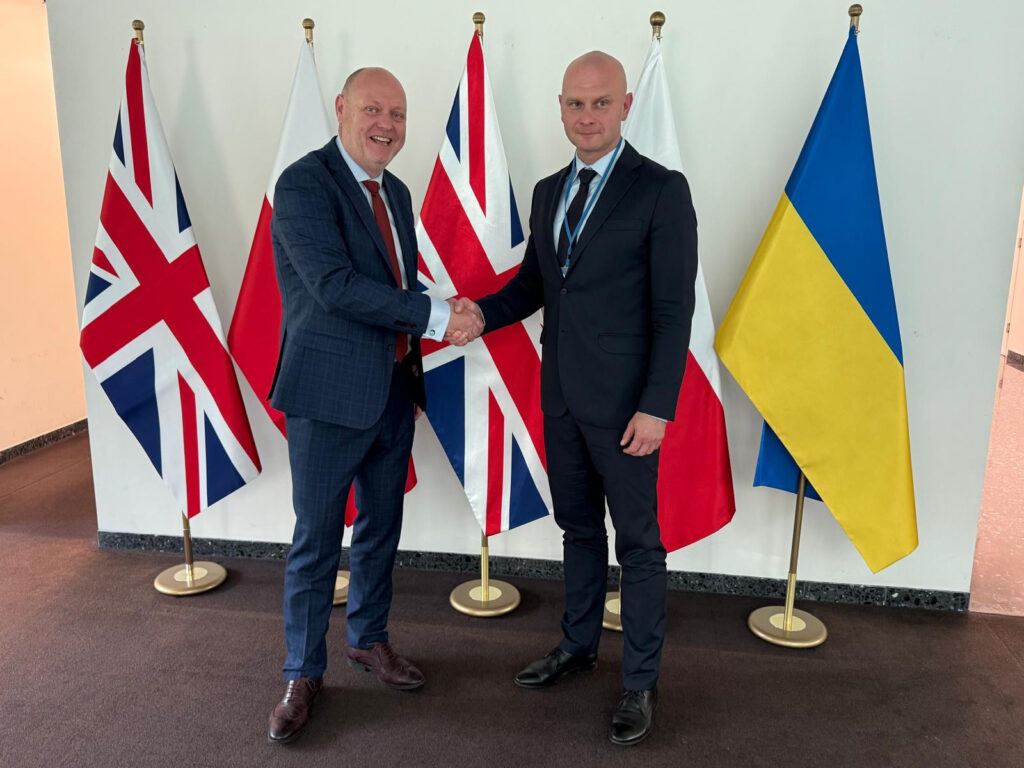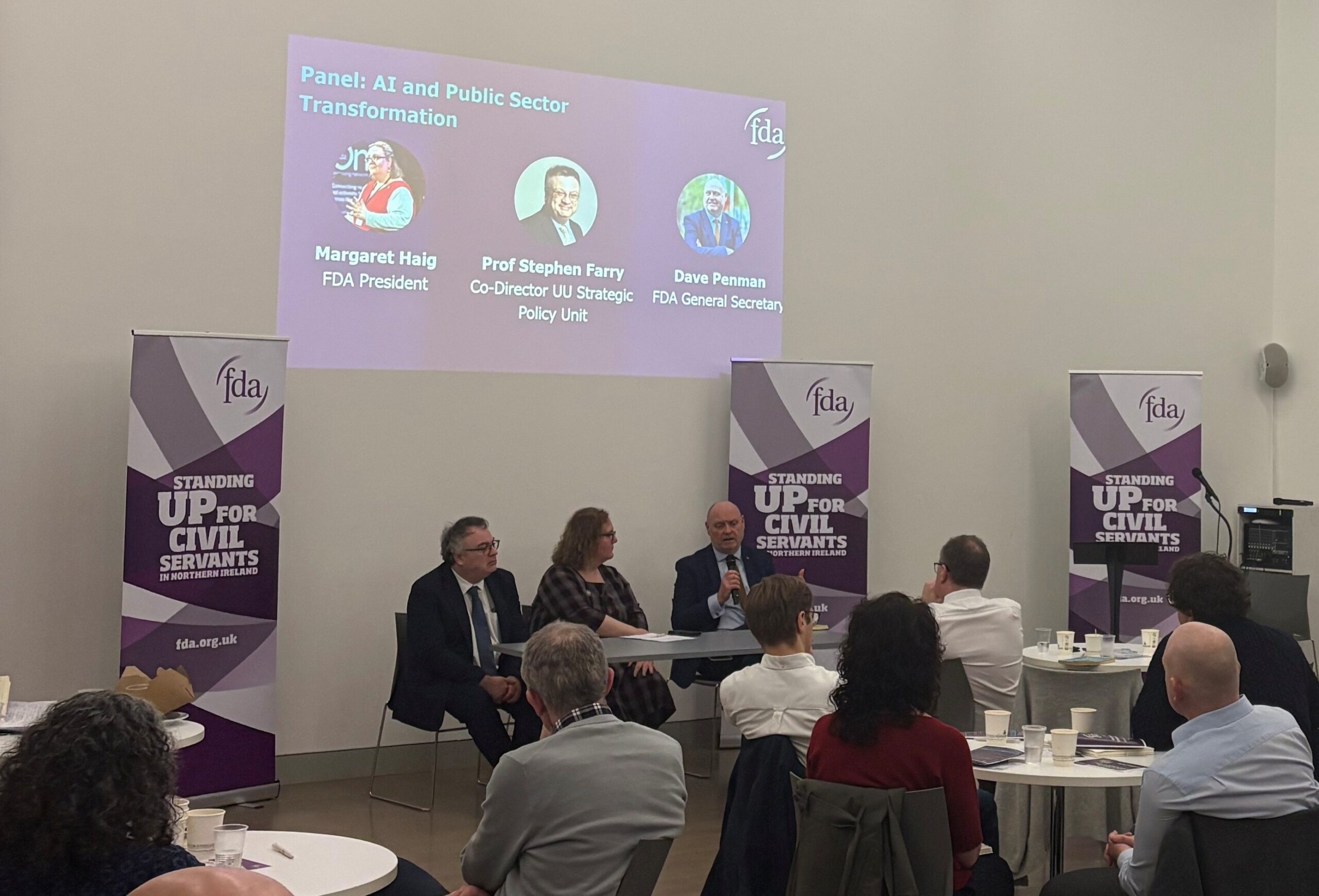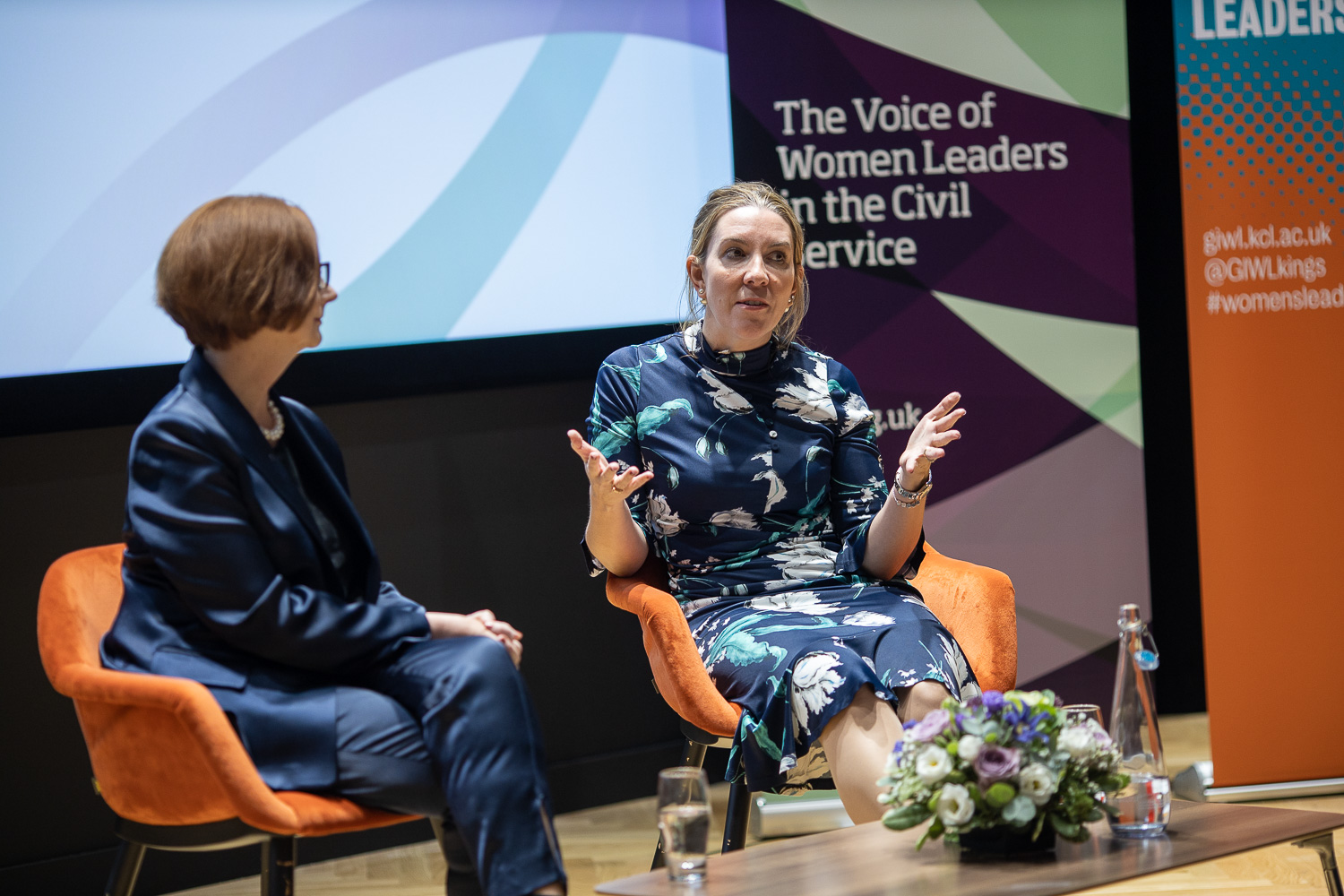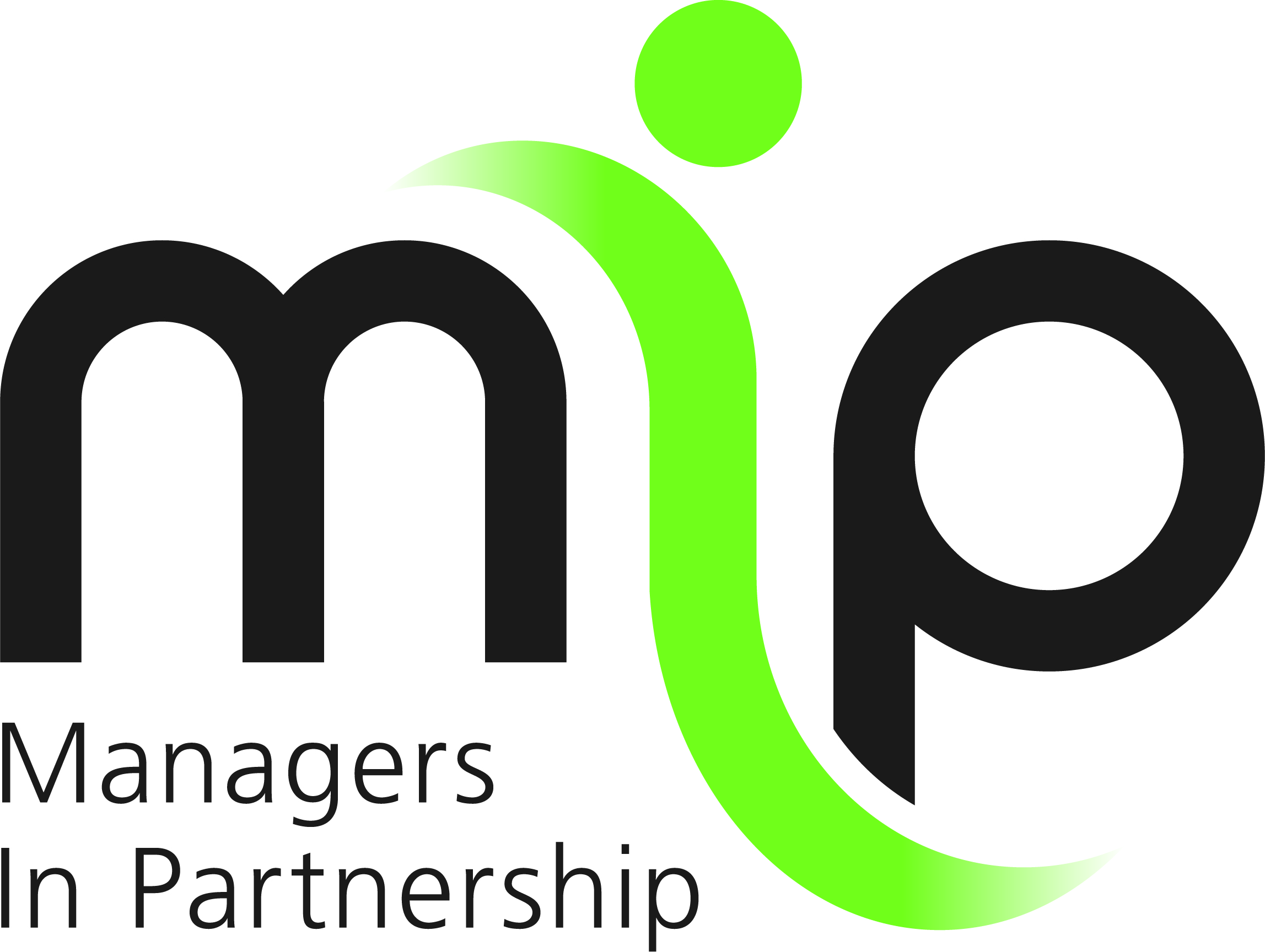Inside UK PLC: Penman discusses recent trip to Warsaw with FCDO

In May, FDA General Secretary Dave Penman visited Warsaw and its embassy to help highlight the significant work of our Foreign, Commonwealth and Development staff, based in countries across the globe.
I spent the first ten years of my working life being a civil servant and then the next thirty representing them, so I’m familiar with most areas of the service, from small Arm’s Length Bodies to the great departments of state. Understanding what our members do every day, and the breadth of the work carried out by civil servants, is helpful when you spend a lot of time defending the service, its value and its values.
One area I was less familiar with was the work of our members based overseas, in our embassies and missions. The promotion and protection of the UK’s interests around the world, is often unseen, so I was delighted when the Foreign, Commonwealth and Development Office (FCDO) offered me the opportunity to see this vital work first-hand. After refusing to accept my business case for Bermuda or the Seychelles, we agreed on Warsaw, at the forefront of two of the big challenges the country faces right now: security and economic growth. I was accompanied by FCDO HR Director Mervyn Thomas, who acted as my guide and minder in equal measures.
Poland is a fascinating and beautiful country, with such a strong sense of national identity, forged in part through an extraordinary recent history. It is hard to imagine that it’s only a little over 30 years since the country emerged from the communist era, with its history of repression and state violence.
Today, Poland is a country and economy transformed. In the last 20 years, the economy has doubled in size and is forecast to grow by 3.4% in 2025. It has one of the lowest unemployment rates in the Organisation for Economic Co-operation and Development (OECD) at 2.6%, despite the massive influx of refugees from Ukraine, many of whom are economically active. However, it does have longer-term structural problems in the economy, principally from an aging population and one of the lowest birth rates in the world. This has challenges for longer-term skills gaps, pressure on public services and the social challenges associated with immigration being used to fill said gap. Sound familiar? The first round in the Presidential election was being held on the day I arrived, and there had been a disturbing rise in the vote share of some of the more extreme anti-immigration candidates.
The war in Ukraine is never far from your mind, with more than one million refugees taken by Poland in the immediate aftermath of the invasion, an extraordinary act of compassion by a country experiencing profound political, economic and social consequences. Poland is one of Ukraine’s staunchest supporters, and in the weeks running up to the Presidential election, attempts to destabilise the country were routine, with illegal immigrants bussed to the border with Belarus. This has also impacted upon the work of the mission since 2022, which has been at the forefront of the UK’s response to the invasion.
Mission is the term used to describe the UK’s presence in a country, but it was evident from the first meeting of the day on the Monday morning, with Section Heads, that “mission-based” government is very much how an embassy operates. The meeting included staff based in Poland from a number of government departments and agencies, all of whom work to the Head of Mission Anna Clunes. They discussed the political situation and advice that will be relayed back to the UK following the election. The economic opportunities associated with our strong historical ties with Poland were very much a priority for the mission, as I was to see the next day: developments on border security, contraband and customs, as well as running through the weekly diary, from ministerial visits to TV interviews.
The other aspect that surprised me was the integral role of country-based staff, mainly Poles, employed to support our mission. They were critical to almost every aspect of the mission’s work, and their skill and dedication to supporting the UK’s interests in Poland was astonishing.
The team had set a up a series of meetings for me and in the afternoon I met with Director of Human Capital Bureau Marta Zielińska-Śliwka, and Head of Competence Management Team Danuta Mokwa, at the Polish Ministry of Foreign Affairs to discuss the many similar challenges their Ministry faces.

Then it was back to the embassy for what was a personally significant moment, meeting Bartłomiej Mickiewicz, the Deputy President of Solidarność, the Solidarity Trade Union. I have such profound memories of Solidarność – its formation, repression and the role it played in leading Poland’s democratic transition. It went from around ten million members at its height to around 400,000 today, and Bartłomiej was open about the challenges the union has faced given its history and the limitations of social dialogue arrangements in Poland. We exchanged lapel badges and misty eyed, I posed for a photo by the flags in the Embassy.
The next day I saw UK PLC at work with the launch of the UK-Polish Airport Development forum, bringing together UK companies in the airport sector, from engineering to service providers, together with industry representatives in Poland’s airport sector. A massive new hub airport -designed by Foster and Partners and Brurro Happold – is due to begin construction, hoping to rival Heathrow, Schiphol and Frankfurt for connecting traffic.
The embassy has a unique role in connecting UK companies as the airport sector is mainly state owned, and demonstrates the pivotal role the embassy has in increasing trade with Poland, which has almost doubled in the last five years. The event was one of several that week across a number of sectors and it’s clear it’s a huge focus for the team, reflecting the UK government’s priorities in this area.
Lunch was at the Ambassador’s residence, where we met with Labour market experts to discuss the challenges the Polish economy faces on productivity, skills and immigration. It was a wide-ranging discussion, covering the models for economic development adopted after the end of communist rule and their impact today. So much resonated with me about the challenges the UK faces and the cross-over between economic imperatives and a rapidly changing policy context across the globe.
Back at the embassy, we met with UK-based staff to discuss the many challenges of working abroad, from allowances and childcare to transitioning to their next appointment, all against a backdrop of a department reducing in size. We also met with country-based staff, who make up about a third of those based at the embassy. Each mission sets its own pay arrangements based on the local economy – this can cause disparities and challenges. FCDO is working to improve the service to country-based staff (CBS), including setting up an advisory group and centralised CBS service centre.
My final meeting was with representatives of the All Poland Alliance of Trade Unions (OPZZ) which is their TUC equivalent, and we discussed the challenges of growing trade union membership and frustration at the outcomes from the sectorial bargaining arrangements, particularly in the public sector.
It was a hectic but fascinating few days. Warsaw is beautiful and moving. The ghetto uprising monument is astonishing and crossing the ghetto boundary markers in the streets around the city was a constant reminder of the atrocities bestowed upon the people of Poland and just how recent ‘recent history’ really is.
The breadth of issues the embassy team deal with perhaps should not have been a surprise, but it was impressive nonetheless. As was the contribution from country-based staff, vital to the success of the mission, recognised and valued by the FCDO staff, but less visible and probably less valued outside of the department.
Like so many areas of the work of the civil service, much remains largely unseen. In my own small way, the visit was to try to shine a light on it, but it has always struck me that the service itself could do a lot more to promote its vital work, which would go some way to help counter the negative narrative often associated with central government. The skill, passion and dedication of those who represent our country’s interests across the globe should not be taken for granted.
Latest news
-

FDA’s annual NI conference takes place in Belfast
FDA members in Northern Ireland had the opportunity to hear directly from two current Finance Ministers; Minister of Finance in NI Executive, John O’Dowd MLA and Cabinet Secretary for Finance and the Welsh Language, Mark Drakeford at the FDA NI Section’s annual conference.
-

“An outstanding leader with a proven track record” – FDA responds to Dame Antonia Romeo appointment
The FDA has welcomed the appointment of former Home Office Permanent Secretary Dame Antonia Romeo as Cabinet Secretary, following the departure of Sir Chris Wormald last week.
-

Job Advert: Assistant National Organiser – 14 Month Fixed-Term Contract
An opportunity to join the fastest growing union in the UK.